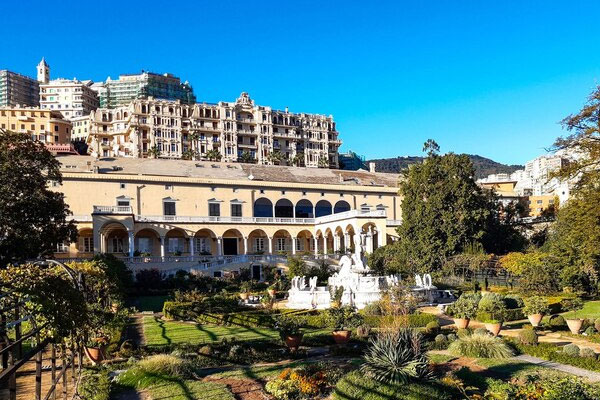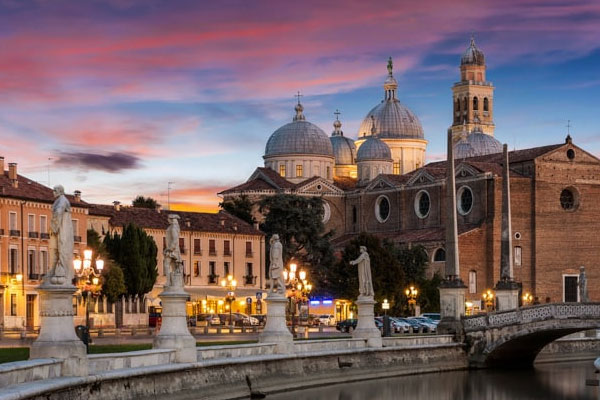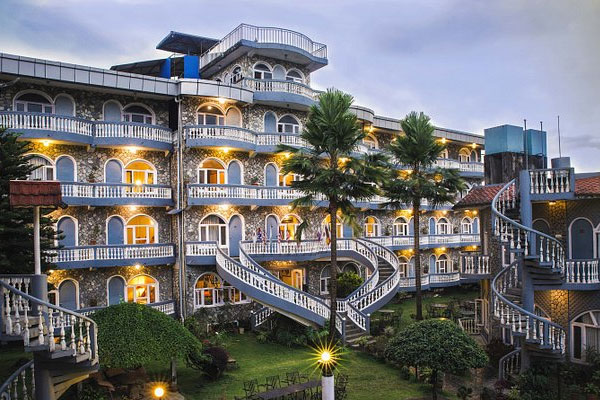Travel
Cheap Car Rental in Bulgaria

Cheap Car Rental in Bulgaria
Cheap Car Rental in Bulgaria: Affordable Car Rental Options for Exploring Bulgaria
The popularity of car rental services continues to rise among tourists traveling abroad, providing them with the freedom to explore at their own pace without relying on public transportation or expensive taxi services.
For those embarking on a journey to Bulgaria, a common question arises: where can one find affordable, long-term car rental services without hefty franchise fees?
In this guide, we’ll delve into the best places for cheap car rental in Bulgaria, outlining the options, important considerations, and the necessary documents.
Where is the Best Place to Rent a Car in Bulgaria?
Renting a car in Bulgaria is a straightforward process with numerous options, ranging from well-established international companies to smaller private rental businesses. Careful planning is crucial, taking into account factors such as the car brand, rental restrictions, additional options, insurance, and overall budget.
While local rental offices are an option, they may lead to unexpected challenges during peak seasons, such as searching for the desired car, increased prices due to additional services, and challenging deposit return processes.
For a more efficient and cost-effective approach, utilizing aggregator websites or brokerage platforms like Economybookings, Autoeurope, and Myrentacar is advisable. These platforms offer several advantages:
Comparative Offers: Users can compare rental offers from various companies, potentially securing a more economical deal than official websites.
Time Savings: All rental options based on specified parameters are conveniently displayed on a single page, saving valuable time.
Transparency: Conditions are transparent, ensuring the guaranteed provision of services with 24/7 support from a Russian-speaking consultant.
For those planning a trip during the high season, booking a car rental in advance, especially upon purchasing flight tickets, is recommended. Arriving at the Burgas airport for car rental provides the convenience of exploring various options without incurring additional haul charges upon return.
Documents Required for Car Rental
Ensuring that you have the necessary documents is vital to avoid service refusal and potential loss of reservation funds. While rules may vary among companies, typical requirements include:
Passport for foreign travel.
A credit card with sufficient funds to cover the deposit and insurance. Specific card requirements are outlined in the rental company’s contract.
Driver’s license. While an international driving license is not mandatory in Bulgaria, it is advisable to ensure that your document is translated and certified by the consulate.
Online bookings result in an email voucher confirming the reservation, with the actual contract finalized on-site upon presenting the complete document package.
Booking a Car on Economybooking
Economybooking has established itself as a reliable and user-friendly aggregator, collaborating with various well-known international and domestic rental companies. The straightforward interface allows users to easily navigate options.
The booking process involves entering the rental location, specifying return details if different, indicating rental dates, and providing age information. Once these details are entered, the website generates a list of possible offers based on user preferences, including car class, year of manufacture, insurance options, and cancellation conditions.
Users can then study the offers, compare prices, choose car preferences, and review rental terms before entering personal information and making an advance payment. Upon confirmation, a voucher is sent to the user’s email, which is presented at the rental office upon arrival.
Booking a Car on Myrentacar
Myrentacar, a relatively young site that initially operated in Montenegro before expanding to include Bulgarian rental companies, offers a distinct advantage. The platform primarily collaborates with private companies, ensuring users receive the specific car showcased in the provided photo.
Before confirming a booking, users can see the full cost breakdown, including daily rental, deposit amount, insurance costs, and additional services. The booking amount typically constitutes up to 20% of the total service fee, with no additional payments required upon agreement with the car owner.
Car Insurance, Deposit, and Franchise in Bulgaria
Understanding the components of car rental costs, including insurance, deposit, and deductible, is crucial to making informed choices. A deposit, a prerequisite for renting a car globally, can be paid in cash or blocked on a credit card account. Upon the vehicle’s return in proper condition, the deposit is fully refunded.
The deductible represents the tenant’s risk coverage for repairing damages incurred during the rental period. The client covers damages up to the deductible amount, with any excess reimbursed by the insurance company. Opting for additional insurance can reduce the deductible to zero, covering all expenses in case of an accident and other risks.
Basic Collision Damage Waiver (CDW) insurance is typically included in the rental price, covering damages up to the deductible amount. However, it may exclude interior, windshield, or tire damages. Extended insurance options are available to eliminate client payments for damages, ensuring the insurance company covers all costs.
Traffic and Traffic Rules in Bulgaria
Navigating Bulgarian roads comes with its peculiarities, with speed limits capped at 50 km per hour within populated areas and 20 km per hour in pedestrian zones. Outside cities and villages, speeds of up to 90 km per hour are permitted. Continuous use of low beams is mandatory, and driving under the influence is strictly prohibited, with penalties including hefty fines and potential imprisonment.
Safety measures, such as seat belt usage for all occupants and child restraints for younger passengers, are enforced. Mobile phone usage while driving is also prohibited, and traffic lights may differ with each lane having its own signal.
Many highways in Bulgaria are tolled, requiring the use of a vignette. It is crucial to possess a valid vignette to travel freely on toll roads, as driving without one results in fines.
Parking in Bulgaria
During the summer, popular resorts in Bulgaria can become congested with vehicles, making parking a significant consideration. Free parking may be available on the outskirts and less touristy areas, but paid parking lots are also prevalent.
Paid parking spaces are marked with signs indicating prices based on duration, with some displaying phone numbers for SMS payments. Prices generally range from 1 to 2 leva per hour, depending on the location and whether it is a guarded parking lot.
Gasoline Costs in Bulgaria
Bulgaria boasts a network of well-known gas stations, including Shell, Petrol, OMV, and others. Gas stations provide services beyond fueling, such as windshield cleaning and coffee shops. Gasoline costs vary, with the starting price at 1.27 leva and the most expensive option reaching 1.42 leva. Gas cars are popular due to their economic efficiency, with the cost of gas priced at 0.64 leva.
Renting a Car in Bulgaria with Travel to Another Country
Bulgaria’s proximity to neighboring countries like Turkey, Serbia, Greece, and Romania opens up opportunities for cross-border travel. Renting a car and exploring neighboring nations is feasible, contingent upon adherence to visa regulations. Notifying the rental company in advance about international travel plans is essential.
This option incurs additional costs, including an administrative fee starting from 50 €, varying based on the car class and the number of countries visited. Deposits may double or even triple, emphasizing the importance of securing full Green Card insurance for comprehensive coverage outside Bulgaria. International driving licenses, obtainable through the State Services portal, are also necessary.
Useful Advice for Tourists Renting a Car
Renting a car in Bulgaria, while cost-effective, comes with increased responsibility for both the vehicle and personal safety. Several recommendations can enhance the rental experience:
Value Time: Avoid last-minute searches and book in advance to save money and access a broader range of options.
Thorough Inspection: Carefully inspect the rented car, document any existing scratches or damages with photos, and ensure a test drive to familiarize yourself with the vehicle.
Vignette Awareness: Check for the presence and validity of a vignette to freely navigate toll roads. Driving without one results in fines.
Follow Traffic Rules: Adhere to traffic rules, including speed limits, seat belt usage, and prohibition of mobile phone usage while driving.
Local SIM Card: Obtain a local SIM card for accurate navigation and convenient SMS payments for parking.
Conclusion
By understanding the nuances of car rental services in Bulgaria, travelers can access affordable, long-term options without franchises, enabling comprehensive exploration of the country’s coastal regions, inland areas, capital, and even neighboring countries. Share your thoughts and views in the comments below regarding Cheap Car Rental in Bulgaria.
Travel
What to do in Genoa – Travel To Genoa

What to do in Genoa – Travel To Genoa
What to do in Genoa :
Genoa, often overshadowed by its more popular Italian counterparts, holds a wealth of treasures waiting to be discovered. While it may not immediately come to mind when planning an Italian adventure, this maritime city boasts a rich history as the former capital of a powerful republic and the birthplace of renowned figures like Christopher Columbus and Niccolo Paganini.
Despite its lesser-known status, it offers a unique charm and a plethora of attractions that appeal to curious travelers. So, what makes this city special, and what should you do when you visit?
Getting to Genoa
Reaching Genoa is easier than you might think. During the summer months, S7 Airlines offers direct flights, while various European carriers operate year-round flights. Alternatively, you can fly to Milan and take a short train ride to Genoa, which is only about an hour and a half away. Train travel is also an option, with direct routes available from cities like Moscow. Whether you choose to fly or take the train, Genoa is well-connected and easily accessible.
Where to Stay in Genoa
Choosing accommodation in Genoa requires some consideration, especially due to the city’s intricate layout. The historical center may seem compact, but its labyrinthine streets can be confusing to navigate, particularly with luggage. Opting for hotels near major transportation hubs like Principe and Bignoli train stations or metro stations is advisable.
For first-time visitors staying briefly, accommodations near Genova Piazza Principe offer convenience and easy access to transportation links, including the airport bus stop and cruise terminal. From luxurious hotels like the Grand Hotel Savoia to budget-friendly options such as Hotel Chopin, there’s something to suit every preference and budget.
Getting Around Genoa
Exploring Italy on foot is the best way to immerse yourself in its unique atmosphere. While the city’s narrow medieval streets may pose navigational challenges, they offer an authentic glimpse into its history and character. However, public transportation is essential for covering longer distances or navigating the city’s verticality.
Genoa boasts a metro system, buses, funiculars, and elevators integrated into the transportation network. Consider purchasing a 24-hour Genova Pass for unlimited access to public transport, excluding airport shuttles.
What to See in Genoa
Contrary to popular belief, Genoa is brimming with attractions awaiting discovery. From opulent palaces and picturesque gardens to ancient churches and world-class museums, the city offers something for every traveler. Key highlights include Ferrari Square, a grandiose civic space; the Cathedral of St. Lawrence, guarded by stone lions; and the Palazzi dei Rolli, a collection of historic palaces showcasing Genoa’s architectural splendor.
Additionally, numerous churches, including the Church of St. Peter’s and the Church of St. John, offer cultural and architectural delights. Don’t miss iconic landmarks like Villa del Principe, Lanterna lighthouse, and the medieval gate of Porta Soprano, each adding to Genoa’s allure.
Day Trips from Genoa
While Genoa itself warrants exploration, it also serves as an ideal base for day trips to nearby destinations. Along the Ligurian coast, picturesque towns like the Cinque Terre National Park, Portofino, Rapallo, and Camogli beckon with their scenic beauty and charm. Venture westward to discover hidden gems such as Noli, Finale Ligure, and Albenga, each offering its own unique allure.
Beyond the coast, explore the caves of Toirano or visit the historic town of Campo Ligure, known for its medieval castle. With so much to see and do in the surrounding area, Genoa provides an excellent starting point for exploring Liguria’s diverse attractions.
Conclusion
Genoa may not be as widely recognized as other Italian cities, but its cultural heritage, architectural marvels, and coastal beauty make it a destination worth exploring. Whether you’re strolling through its labyrinthine streets, admiring historic palaces, or embarking on day trips along the Ligurian coast, Genoa captivates visitors with its rich history and vibrant atmosphere. So, why not uncover the hidden treasures of this underrated gem on your next Italian adventure?
Travel
Things to do in Rimini Italy

Things to do in Rimini Italy
Do you know the most important Things to do in Rimini Italy? Let’s take a look
Rimini is renowned as a beach resort destination, drawing visitors from Italy and beyond with its long history of seaside hospitality. However, beyond its sandy shores lies a city steeped in ancient heritage and cultural charm, offering a wealth of attractions for travelers to discover. In this comprehensive guide, we’ll delve into everything you need to know to plan an unforgettable trip to Rimini.
Getting to Rimini
Rimini is accessible by air, land, and sea, making it convenient to reach from various parts of Italy and Europe. The city has its own international airport, Federico Fellini Airport, serving both domestic and international flights. Additionally, Rimini is well-connected by train, with direct rail links to major cities like Bologna and Ancona. For those arriving by car, highways provide easy access to Rimini from neighboring regions.
Where to Stay in Rimini
With its status as a popular resort destination, Rimini offers a wide range of accommodation options to suit every traveler’s needs and preferences. The Marina Centro area, situated in the heart of the resort district, is ideal for beachgoers seeking convenience and proximity to amenities.
Here, hotels like Erbavoglio and De Londres offer comfortable accommodations within walking distance of the beach. Alternatively, for those looking to explore the city’s historic center, hotels in the Old Town area provide easy access to landmarks like the Tempio Malatestiano and Ponte di Tiberio.
Getting Around Rimini
Navigating Rimini is relatively straightforward, with most attractions located within easy reach of the city center. Visitors staying in Marina Centro can explore the resort area on foot, while those venturing further afield can make use of public transportation options like buses and trains. Rimini’s efficient public transit system provides convenient access to key sites, including the Old Town and surrounding areas.
What to See in Rimini
Rimini boasts a rich cultural heritage, with a variety of historical and architectural landmarks waiting to be explored. In the city’s historic center, visitors can admire the impressive Tempio Malatestiano, a medieval temple converted into a cathedral, and stroll across the ancient Ponte di Tiberio, a Roman bridge dating back to the 1st century AD. For a glimpse into Italy’s cinematic history, Parco Federico Fellini offers a tribute to the renowned filmmaker with statues and exhibits celebrating his life and work.
In addition to its historical attractions, Rimini is home to modern marvels like Italia in Miniatura, a theme park featuring miniature replicas of famous Italian landmarks. Perfect for families and visitors of all ages, this unique attraction offers a fun and educational experience that showcases the country’s cultural heritage on a smaller scale.
Day Trips from Rimini
While Rimini itself offers plenty to see and do, its strategic location makes it an ideal base for exploring the surrounding region. Nearby destinations like San Marino, Santarcangelo di Romagna, and Gradara are easily accessible by car or public transportation, offering charming villages, historic sites, and picturesque landscapes to discover.
For those seeking a taste of urban culture, cities like Bologna, Ravenna, and Ancona are just a short train ride away, providing opportunities to explore their rich history, vibrant arts scene, and culinary delights.
Conclusion
From its sun-drenched beaches to its ancient landmarks and modern attractions, Rimini offers a diverse array of experiences for travelers to enjoy. Whether you’re soaking up the sun along the Adriatic coast, exploring the city’s historic center, or embarking on day trips to nearby destinations, Rimini promises a memorable and rewarding travel experience for visitors of all interests and ages.
Travel
Where to Stay in Trento Italy

Where to Stay in Trento Italy
Where to Stay in Trento, Italy :
Trento, nestled in a valley at the base of the Alps, is a city worth exploring! With its picturesque surroundings and proximity to other charming towns and attractions, Trento offers something for every traveler. Whether you plan to wander through the city streets, venture into the nearby mountains, or use Trento as a launching pad for further adventures, there’s plenty to see and do here.
Which area of Trento is best for accommodation?
Trento is relatively straightforward to navigate, with the historical city center separated from the train and bus stations by a large square. Near the station, you’ll find a tourist information kiosk where you can pick up a map of the city, or visit a nearby travel agency for assistance.
Trento offers city-wide wireless internet access, although you may need to register in advance for login credentials. It’s worth noting that temperatures can vary significantly between the city and the mountains, so be sure to pack appropriate clothing and footwear for your adventures.
The area around the train station is relatively clean and quiet, making it a convenient option for those planning to explore the region using public transportation. Hotels near the station, such as the Grand Hotel Trento and Hotel America, offer comfortable accommodations at slightly lower prices compared to those in the city center. These hotels provide easy access to both the station and the historical center of Trento, which is just a short walk away.
Speaking of the city center, Trento’s historical district is relatively compact, making it easy to explore on foot. When choosing a hotel in this area, focus on factors such as cost and traveler reviews rather than proximity to specific attractions, as most hotels are within walking distance of the main sights.
Keep in mind that older buildings in the city center may lack amenities like elevators and spacious bathrooms, but they often offer charm and character in abundance.
Hotels such as Hotel Venezia and Hotel Aquila D’Oro offer comfortable accommodations in the heart of Trento’s city center. While some rooms may offer views of the city or nearby landmarks, be prepared for the possibility of street noise, especially in the mornings. Alternatively, Albergo Accademia provides spacious designer rooms with amenities like jacuzzis, although guests may prefer rooms facing the quieter courtyard.
For those seeking a more independent accommodation option, apartments can be a great choice. Borgo Rossi Apartments, located near Piazza Venezia, offer kitchenettes and dining areas, allowing guests to prepare their meals and experience local cuisine firsthand. Be sure to communicate with the apartment owners or managers ahead of time to clarify details like heating and air conditioning availability, parking options, and key pickup procedures.
Conclusion
In conclusion, Trento offers a range of accommodation options to suit every traveler’s needs and preferences. Whether you choose to stay near the train station for convenience or in the heart of the city center for easy access to attractions, you’re sure to enjoy your time exploring this charming Italian city.
-

 Travel9 months ago
Travel9 months agoBest Spinning Rod for Bass 2024
-

 Technology9 months ago
Technology9 months agoBest Lure for Trout 2024
-

 Travel9 months ago
Travel9 months agoBest Hunting and Fishing Clothing 2024
-

 Travel9 months ago
Travel9 months agoBest Robot Vacuum Cleaners 2024
-

 Technology9 months ago
Technology9 months agoBest Floats for Night Fishing
-

 News6 months ago
News6 months agoValentine’s Deals
-

 Technology9 months ago
Technology9 months agoBest Twisters for Fishing 2024
-

 Travel9 months ago
Travel9 months agoBest Spinning Fishing Reels for Bass 2024


















